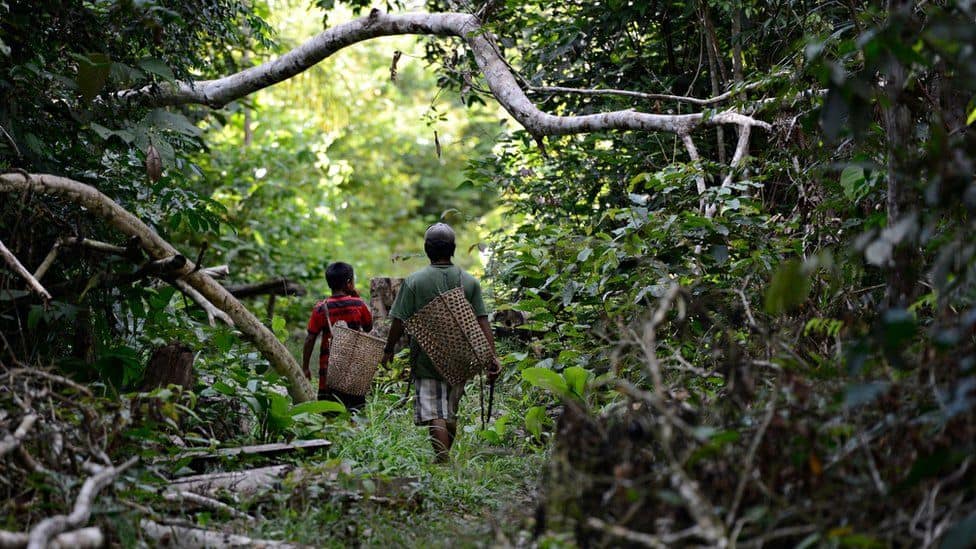
Brazil’s Indigenous People Greeted Vaccination Helicopter With Bows and Arrows
A helicopter loaded with health workers and coronavirus vaccine doses took off from Labrea, in the southern part of the Amazon, heading to a village some 50km away.
But the villagers, part of the indigenous Jamamadi group, greeted the chopper armed with bows and arrows – and demanded that it leave.
They’d been hearing false rumours about vaccines and wanted reassurances from a religious missionary – not doctors – before getting jabbed. The helicopter left without administering any of the doses.
Fragile relationship
The incident in early February was described to BBC News Brasil by several sources who asked not to be identified for fear of upsetting the fragile relationship between health teams and indigenous people.
The people we spoke to say that armed welcoming parties are very rare, but they are worried about vaccine rumours being spread to indigenous people through mobile phones. Many mobile phone operators in Brazil include free use of Facebook and Facebook-owned Instagram and WhatsApp in their payment plans, whereas use of other networks and websites incurs a cost.
WhatsApp – a common source of community and family news – presents a particular problem, experts say.
Information on chat apps tends to come from people closer to us, who we instinctively trust – but data packages discourage people, particularly the cash-strapped, from double-checking health information.
Indigenous journalist Anapuaka Tupinamba says WhatsApp enabled “a leap” for indigenous people in the areas of politics and education, but calls technology “a double-edged sword”.
“What we have today is a ‘fake’ internet. When you see fake news, you can’t check it,” Anapuaka says. “So it feels like I’m on the internet, but not really. I’m almost on the intranet of a large company.”
Anapuaka cites one recent example circulated on the app – a story about 900 indigenous Xingu people dying after receiving a vaccine. It was false.
Sources of info
Much of the bad vaccine information circulating on WhatsApp originates not from the villagers themselves but from politicians and religious leaders. This includes Brazil’s President.
“Nobody can force me to get the vaccine,” Jair Bolsonaro said in September. The following month, he declared: “The Brazilian people will not be anyone’s guinea pig”. He wasn’t going to get the vaccine, he said, “and that’s it.”
He appeared to echo bizarre and false claims, common in anti-vaccine groups online, about Covid vaccines altering people’s DNA.
“If you become an alligator, it’s your problem … if a woman grows a beard or a man starts to speak with a thin voice, they [pharmaceutical companies] will have nothing to do with it.”
It was those kinds of statements that resonated most with indigenous communities, says Indianara Machado, a nurse from Brazil’s Central-West region.
“People in the village ask themselves: ‘If the president didn’t take it [the vaccine], how are we going to take it?’” she says.
Source: BBC

